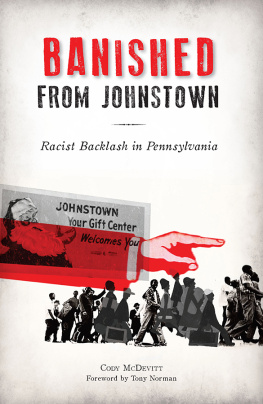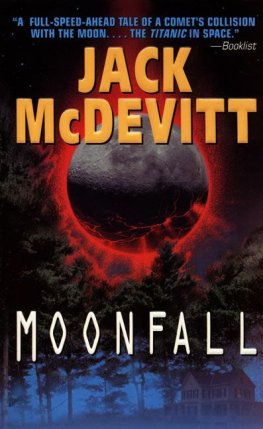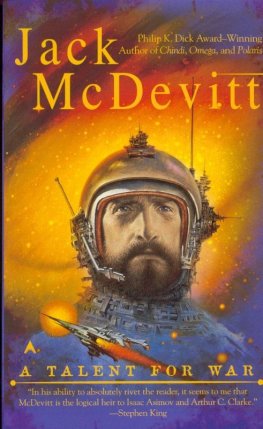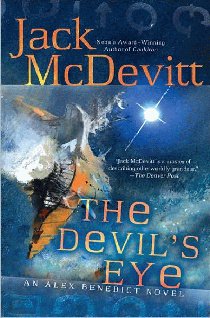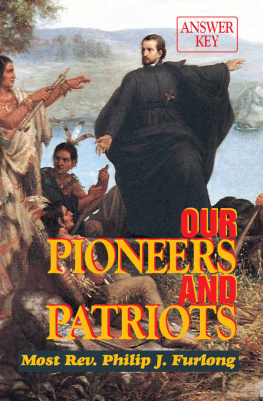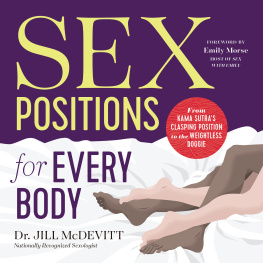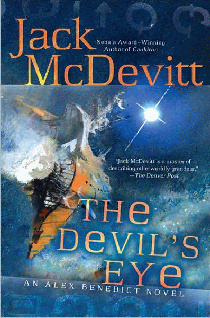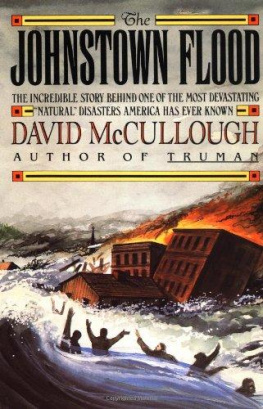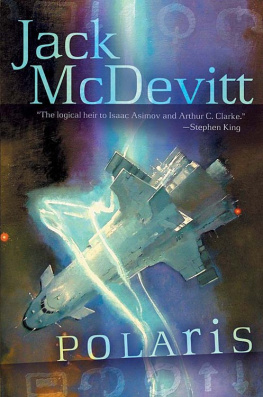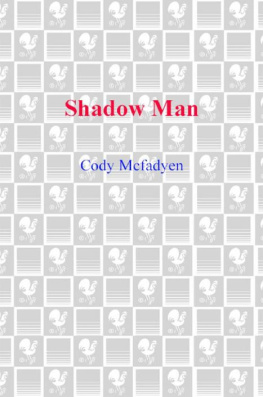Cody P. McDevitt - Banished from Johnstown
Here you can read online Cody P. McDevitt - Banished from Johnstown full text of the book (entire story) in english for free. Download pdf and epub, get meaning, cover and reviews about this ebook. year: 2019, publisher: The History Press, genre: Politics. Description of the work, (preface) as well as reviews are available. Best literature library LitArk.com created for fans of good reading and offers a wide selection of genres:
Romance novel
Science fiction
Adventure
Detective
Science
History
Home and family
Prose
Art
Politics
Computer
Non-fiction
Religion
Business
Children
Humor
Choose a favorite category and find really read worthwhile books. Enjoy immersion in the world of imagination, feel the emotions of the characters or learn something new for yourself, make an fascinating discovery.
- Book:Banished from Johnstown
- Author:
- Publisher:The History Press
- Genre:
- Year:2019
- Rating:3 / 5
- Favourites:Add to favourites
- Your mark:
- 60
- 1
- 2
- 3
- 4
- 5
Banished from Johnstown: summary, description and annotation
We offer to read an annotation, description, summary or preface (depends on what the author of the book "Banished from Johnstown" wrote himself). If you haven't found the necessary information about the book — write in the comments, we will try to find it.
Banished from Johnstown — read online for free the complete book (whole text) full work
Below is the text of the book, divided by pages. System saving the place of the last page read, allows you to conveniently read the book "Banished from Johnstown" online for free, without having to search again every time where you left off. Put a bookmark, and you can go to the page where you finished reading at any time.
Font size:
Interval:
Bookmark:

Cody McDevitt has breathed new life into the complicated story of the Rosedale Riot in Johnstown and the tensions created in this industrial city once the steel plant found it necessary to recruit Southern African Americans to perform the unskilled tasks previously done by East Central European immigrants.
Richard Burkert, president, Johnstown Area Heritage Association
Codys McDevitts Banished from Johnstown is a reminder that the unthinkable can and has happened here: In 1923, 2,000 African Americans and Mexican immigrants were ordered by the citys mayor to leave their homes and jobs in Johnstown. McDevitt, a veteran journalist, looks at how and why this injustice happened in a state north of the Mason-Dixon Line.
Len Barcousky, retired Pittsburgh-Post-Gazette reporter and author of a Southwestern Pennsylvania history trilogy
Cody McDevitt vividly narrates the complexities of anti-black and anti-Mexican racism in the context of a decade of swirling social changes in the Great Migration of black southerners to industrial Johnstown, Pennsylvania, where authority figures and others in pursuit of political power promoted racial antagonism that erupted in the Rosedale Riot in 1923. Narrating the lives of black, white and Mexican townspeople, McDevitt informs readers that racial conflict and efforts at ethnic cleansing in Johnstown reflected central themes of race and class across the nation from Reconstruction to early twenty-first-century America.
Charles Lloyd Lumpkins, teaching assistant professor, Penn State University, School of Labor and Employment Relations
Cody McDevitt has filled in yet another box in the checkered history of racial cleansings in America. It is also one of the strangest stories to emerge. After a shootout that killed or wounded several police, the eccentric mayor of Johnstown, Pennsylvania, started a one-man crusade to drive out all blacks who moved to the city after 1917. It did not go well.
Elliot Jaspin, Pulitzer Prize winner, author of Buried in the Bitter Waters: The Hidden History of Racial Cleansing in America
Cody McDevitt has brought to life a little recognized tragic episode in African American and Johnstown history. Recalling the national debate about race and constitutional rights and the willingness to express dictatorial rule over black lives by white elected officials was not just a scene in large urban areas, but the small mid-American heartland as well.
Samuel W. Black, director, African American Program, Senator John Heinz History Center

Published by The History Press
Charleston, SC
www.historypress.com
Copyright 2020 by Cody P. McDevitt
All rights reserved
Front cover design by Alisha Wormsley.
First published 2020
E-Book edition 2020
ISBN 978.1.43966.884.9
Library of Congress Control Number: 2019951253
Print edition ISBN 978.1.46714.274.8
Notice: The information in this book is true and complete to the best of our knowledge. It is offered without guarantee on the part of the author or The History Press. The author and The History Press disclaim all liability in connection with the use of this book.
All rights reserved. No part of this book may be reproduced or transmitted in any form whatsoever without prior written permission from the publisher except in the case of brief quotations embodied in critical articles and reviews.
Comfort the Afflicted and Afflict the Comfortable
CONTENTS
FOREWORD
Everyone knows about the Johnstown Flood of 1889, though no one alive today personally experienced that calamity in western Pennsylvania in real time.
Eminent historians have written about it. Poets have waxed eloquent about the destruction caused by the failure of the South Fork Dam that killed more than 2,200 people.
Best-selling sheet music was commissioned nearly a century before Bruce Springsteen sang about it on Nebraska. Plays were staged about its aftermath. One of the first silent movies memorialized it.
Theres a well-regarded Flood Museum that has as its mission the preservation of every relevant detail of that deluge. For those who want to pay their respects, theres also the Johnstown Flood National Memorial, a solemn edifice that commemorates the 777 people whose bodies were recovered after the Conemaugh Rivers rampage but never identified.
Even those tempted to forget the citys history of flooding cant get around the 18 percent Johnstown Tax on liquor sales in Pennsylvania, which deposits $300 million annually into the states general fund decades after the last puddle evaporated in the second flood.
Thats why it would be inconceivable for anyone living in Johnstown today to be stumped by a question about one of the greatest natural disasters in American history. Theres a monument or placard everywhere you look, lest one forget.
The average Johnstown residents grasp of regional history gets a little shakier once the subject turns to a disaster in 1923 that defined the town for much of the country a mere thirty-four years after a flood of biblical proportions put the community on the map in the first place.
On September 7, 1923, Mayor Joseph Cauffiel ordered all blacks and Mexicans who had been in Johnstown for less than seven years to leave town. He gave these citizens and migrants who had done nothing to warrant exile from their homes and communities less than a day to conclude their affairs and leave townor face crippling fines and months in jail.
Cauffiel issued the unconstitutional edict in response to the fatal shooting of two police officers and the critical wounding of four others when they attempted to arrest a black man in Rosedale, a black neighborhood in Johnstown.
Mayor Cauffiel, a notorious racist even by the standards of the day, had been known for the draconian sentences he imposed on blacks and Mexicans who came before him in his capacity as a magistrate in the notorious Mayors Courts that were still operating in Pennsylvania at the time.
An estimated two thousand African Americans and Mexicans uprooted their lives and left Johnstown rather than challenge Cauffiel in court, given his propensity for ignoring the law. Cauffiel was not only a sanctimonious teetotaler but also an incorrigible ally of the Ku Klux Klan, though he insisted that his campaign to racially cleanse Johnstown was rooted in concern for the welfare of these minoritiesnot racial hatred.
The expulsion of Johnstowns black and Mexican population was arguably the most important thing that happened in that city in the twentieth century, yet it is an event that has fallen into the regions memory hole. Most people have never heard of it. It isnt taught in regional schools. Unlike the Johnstown Flood, a disaster etched indelibly upon the minds of people born and raised there decades later, the events of 1923 are a source of shame and embarrassment.
The moral complicity of the white citizens in Johnstown who did nothing while Mayor Cauffiel made a mockery of the constitutional rights of black citizens and Mexican migrants is obvious. Amnesia comes in handy when evading historical guilt.
But what happens when the story of Cauffiels attempts to deal with the Negro Problem resurfaces with all of its inglorious details decades later? What happens when a dogged journalist at the Somerset Daily American resurrects a pitiable drama of American terrorism an entire region has managed to forget?
Next pageFont size:
Interval:
Bookmark:
Similar books «Banished from Johnstown»
Look at similar books to Banished from Johnstown. We have selected literature similar in name and meaning in the hope of providing readers with more options to find new, interesting, not yet read works.
Discussion, reviews of the book Banished from Johnstown and just readers' own opinions. Leave your comments, write what you think about the work, its meaning or the main characters. Specify what exactly you liked and what you didn't like, and why you think so.

